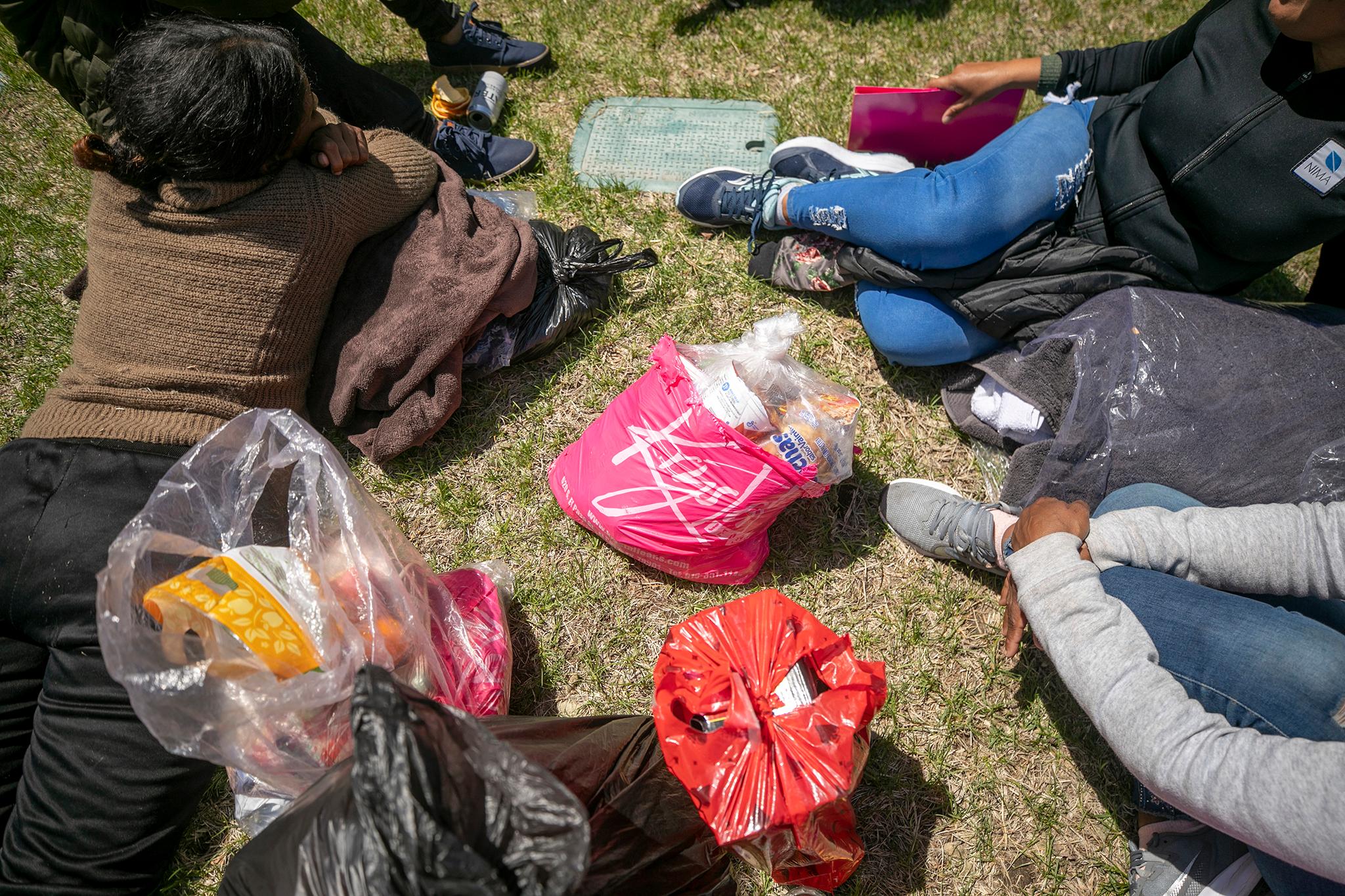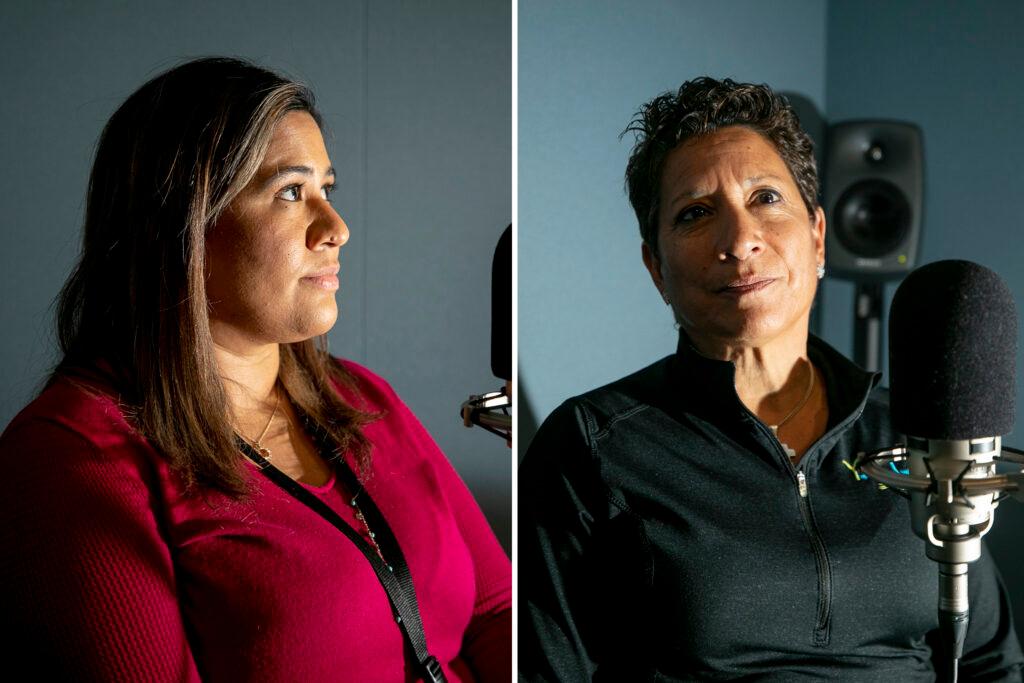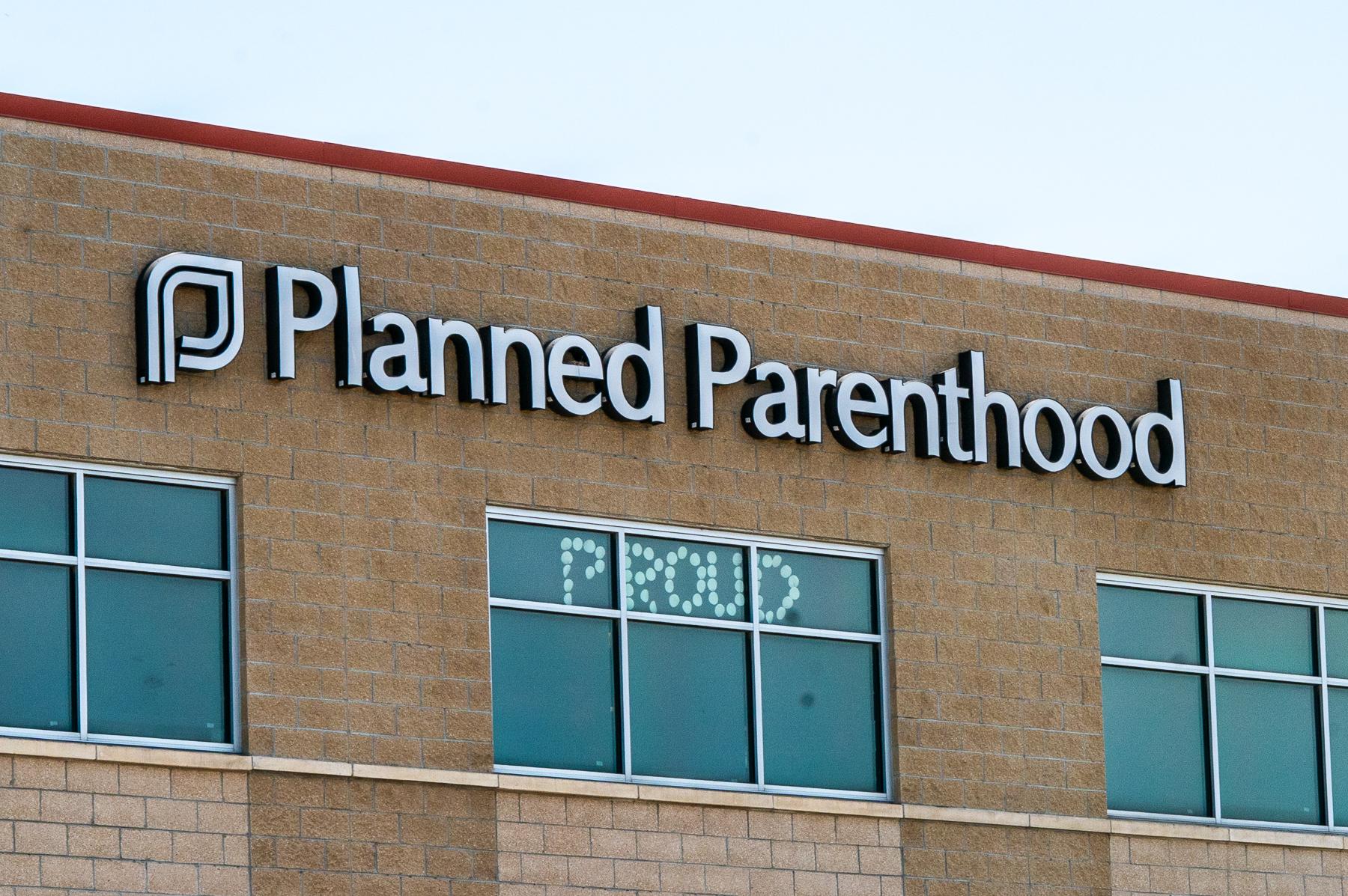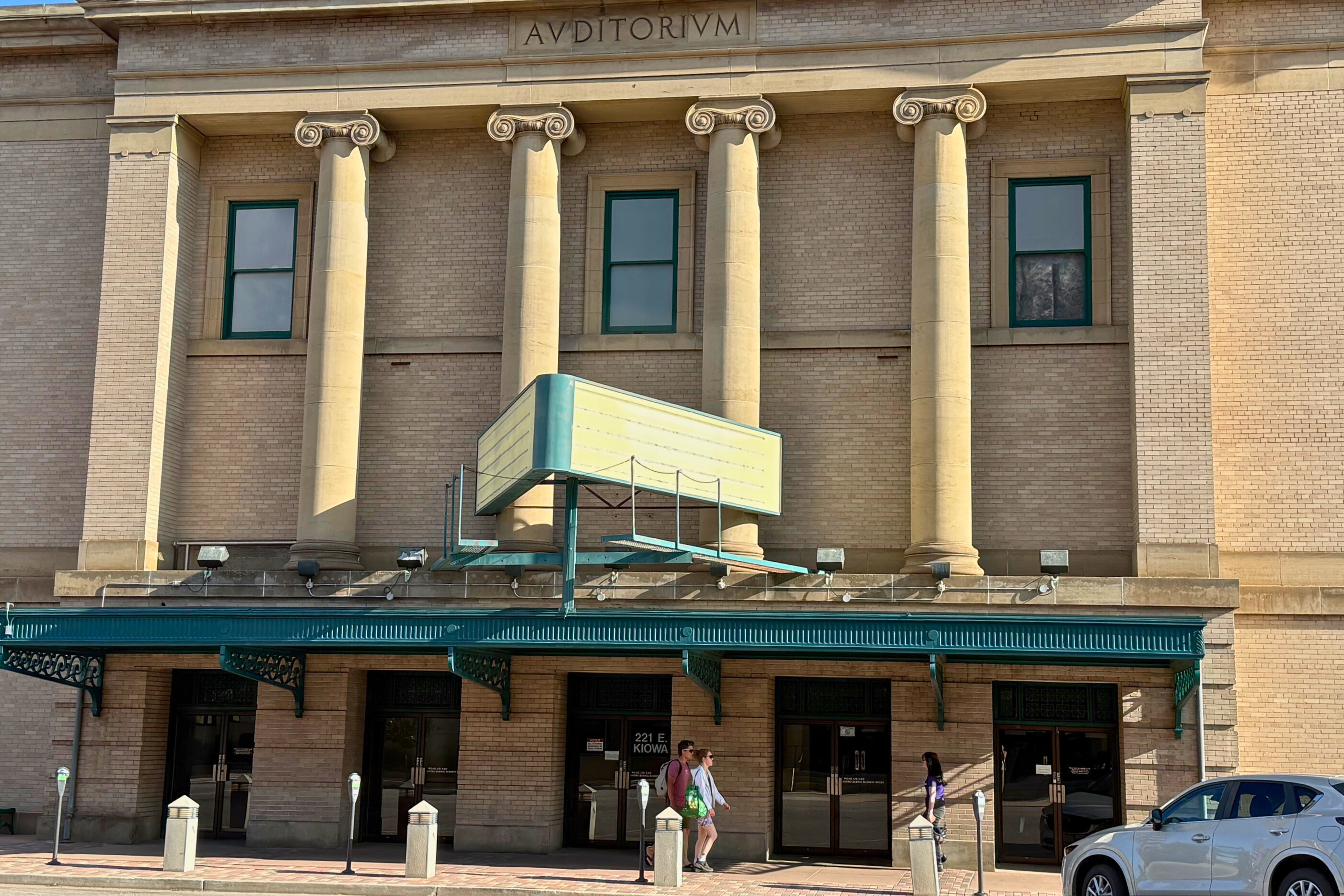
Like other U.S. states, Colorado has seen tens of thousands of people arriving from the southern border since late 2022.
They left home countries with extreme economic hardships, or ones experiencing wars or a lack of basic human rights. Many want to find work in Colorado to set up lives for themselves and their families, but they aren’t legally allowed to work for many months or even years.
Starting this fall, the Biden administration is allowing Venezuelans who came to the U.S. by July 31, 2023, to apply for Temporary Protected Status, which would give them a reprieve from deportation and allow them to work for 18 months.
The idea, said Yoli Casas from ViVe Wellness in Denver, is that they’ll be able to earn money while they want for an asylum application to be filed and considered, so they have more independence and, theoretically, can support themselves.
The Biden administration explained its decision to extend the opportunity to Venezuelans by saying that their home country, "is suffering one of the worst humanitarian crises in the history of the western hemisphere.”
ViVe Wellness, another nonprofit called Organización Papagayo, the state’s Office of New Americans and other partners are starting to offer legal clinics to help Venezuelans who are eligible to apply.
The first one was Nov. 11. Organizers say they will need more multilingual volunteers and attorneys working at a “low bono” rate around the state to help people apply.
In many ways, though, the new TPS eligibility is an inadequate solution to a much larger problem, said Organización Papagayo’s CEO Marielena Suarez. She hopes that about 5,000 Venezuelans who have come to Colorado in the past year will be able to apply, which is about a sixth of the people known to have migrated here during that time.

Others entered after July 31, or are from countries not covered by TPS. The tens of thousands of people who have arrived are increasingly ending up living on the streets in places as widespread as Denver and Carbondale.
Organización Papagayo and ViVe Wellness are two of the groups on the front line helping migrants when they arrive in metro Denver. They have offered housing support; helped people find work, enroll in school or obtain a cell phone; connected migrants with access to mental health counselors; or found transportation to another city where they may have stronger connections.
But Casas said the funding available for housing support has vastly decreased, so she’s only able to get a fraction of the people into housing as she was during the first half of 2023, which is why so many people are now on the streets.
The groups face other challenges, too: Suarez said there aren’t enough Spanish-language counselors, for example, to help migrants process their traumatic journeys on foot up through Central America in conditions Suarez calls “unthinkable” and “inhumane.”
Suarez and Casas spoke with Colorado Matters host Ryan Warner about what TPS can offer Venezuelan migrants, and about where things stand a year after migrants started arriving in large numbers to metro Denver.
Read the interview
This interview transcript has been edited for length and clarity.
Ryan Warner: When people arrive in Colorado, what signs do you see of what they have endured?
Yoli Casas: Lots of trauma. When they start going to school here, the children come with a lot of stories about when they walked for three to four months, where they've gone through the jungle. They name all the countries they walked through. They talk about being tired, being chased, being robbed — things that no child or people should see.
Marielena Suarez: There is human trafficking and so many other things that are not spoken about. I think it is time for humanity to come together with compassion and awareness of what's going on, and do something for those that are not able to do for themselves.
Why is TPS important to the people you work with?
Casas: They've been allowed to come in through the border, and they’re given an immigration number and an appointment, which could be two years from now. You're supposed to be taking care of your family, you have to get a job — how are you surviving? So TPS is an amazing thing to give them a temporary work permit and protection. They can take care of themselves, get housing, and get food until their appointments come.
Without TPS, what do they do for two years?
Casas: A lot of people are on the streets, as you can see. Right now they're in tents. In every state — New York, Chicago, Denver — we're having a crisis. People can't find work. They don't have work permits.
Suarez: But it is important to be aware of what this actually means. We're talking about a temporary status. This is not a permanent solution.
And we're not able to meet everybody's needs. Only those Venezuelans that arrived to the United States before July 31, 2023, are eligible. We also work with people that come from different countries — Colombia, Peru, Chile, Afghanistan, countries in Africa. So at this point, we have a big need that we do not necessarily have a solution for.
So the question comes down to: How are we going to be able to provide a solution for those families so they can become independent from the system and be able to sustain themselves?
When this new opportunity, temporary protected status, got announced in September, did you notice a sense of relief or excitement among the people you've been working with? Just the possibility.
Casas: Absolutely. For me, it was like, "Oh my God, this is amazing. For the people that we have met since December and January, there is a possibility, there is a way that we can help you and you can take care of yourself and your family before your appointment comes."
It was also like — wait a minute, a lot of people are going to be left out. Why July? Why couldn't the cutoff be September or October?
But whatever it was, right now, we're excited about the possibility. We're ready to go and it was something that was needed.
What have you learned as you’ve started to help people apply for TPS?
Suarez: We had to do one-on-one interviews. We had to go through the documents. We had to make sure that they had everything that they needed to qualify. This is time-consuming, and you need interpreters. And we have a shortage of lawyers. We are looking for volunteers.
And, just because you apply it does not necessarily mean that you are approved. The process is big and we would like for the community to be aware of what it takes.
Casas: It costs money to apply. It's a Catch-22: You're not able to work, so how are you going to pay for the application? That's where we're trying to fundraise through the Newcomers Fund.
Do you think that this could make a difference for homeless shelters, food banks, and other social services that have been strained by large numbers of people arriving?
Suarez: Absolutely. There's no doubt we will be making this community independent. And at the same time, they will give back to their community. They're eager to work, they're eager to give back.
People could start applying for TPS almost two months ago. In Colorado, the infrastructure to offer legal help seems like it's only just ramping up. What explains that lag?
Casas: I believe, again, it's figuring out the process. It has taken a long time for the state, for the organizations, to see what needs to happen. Once we start, we're not going to stop for a long time.
If people are granted legal status, you're hoping that it might be as many as 5,000 Venezuelans, they still need to find a job. How does that work?
Suarez: That's part two. We're hoping for our community members to start gathering together. We know that there are job opportunities. The good thing about this community of Venezuelans is that many of them are professionals. We have nurses, teachers — let's say perhaps you're a nurse, you might not be able to practice here, but at least you know how to do customer service because you have kindness and patience. So I think those are skills that you can transfer to different kinds of jobs. It is important to be flexible.
Casas: For example, since December, we have hired various people who were teachers in Venezuela and they were able to help at ViVe Wellness this summer. Also cooks who are able to help prepare lunches for the children.
Editor’s Note: A spokeswoman for the state said in an email that “Colorado is currently working to identify interested employers who want to hire our newest Coloradans, and we are exploring whether existing workforce centers could conduct intakes and build resumes in English, so that we can invite specific employers to career fairs that we host, and help individuals and families get on their feet, while addressing Colorado’s workforce needs.”
The federal, state and local governments seem to be leaning on nonprofits like yours for the migrant response. Do you ever have to turn people away because you lack capacity?
Casas: Both of our organizations have grown and we have partnered with another, approximately, 15 nonprofits.
But sometimes we do have to say no when it comes to housing because of the funds. Many times now, because there's not as much funding, we have to say no, we're not able to help with a security deposit or rent. There was funding between December 2022 and August 2023, and we were able to house a lot of people.
Is there something more you need from the Biden administration, or other levels of government in Colorado?
Suarez: This goes beyond political bodies. I think it's a call for awareness of the situations that go on across the border. Not just here in Colorado, but all throughout the United States, we have an extensive community that has gone through tremendous trauma, and there will be consequences for children.
What is happening across the border — it is unthinkable. It is inhumane. I think no human being should go through something like this. We're not just talking about sexual abuse, we're talking about kidnapping, human trafficking, people being decapitated in front of children. We need to attend to the needs. This is something that goes beyond the border.
Casas: To the Biden administration — I want them to see and think about all of the community and the migrants who have been around. It breaks my heart to see people that have been here for 40 years and they can't even go see their families. Their children have been born here. They have given so much to this country.
They haven't been addressed. So for me, it's like we're adding more to the fire, piling up more things. There's nothing being addressed. Let's not make the same mistake. Every person here is a human being and they deserve an opportunity.









